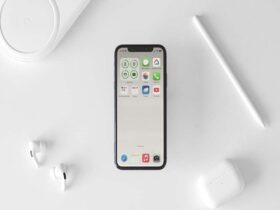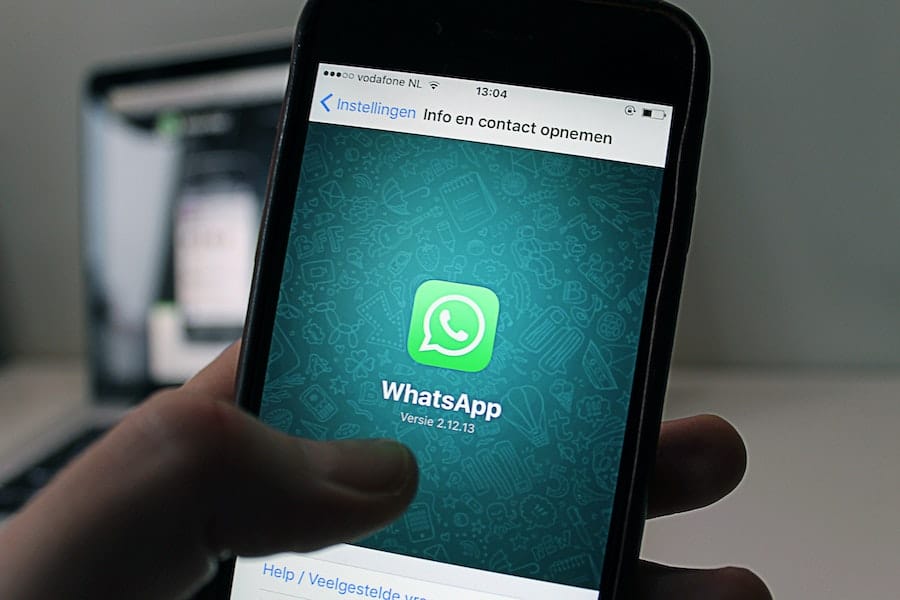In the age of instant communication and digital sharing, WhatsApp has emerged as one of the most popular messaging apps, connecting billions of users worldwide. Its user-friendly interface and convenience make it an attractive platform for sharing various types of content, including private photos. However, as privacy and security concerns continue to grow, many users wonder whether WhatsApp is truly safe for transmitting their sensitive images. This article delves into the security features of WhatsApp potential risks associated with sharing private photos and offers valuable tips to ensure the utmost privacy when using the platform. By the end, readers will have a comprehensive understanding of WhatsApp’s safety for sending private photos and be equipped with the knowledge to make informed choices about their digital privacy.
Is Whatsapp Safe For Sending Private Photos?
WhatsApp provides some level of security for sending private photos through its end-to-end encryption feature. This means that only the sender and the recipient can view the content of the messages, including photos, ensuring a certain degree of privacy. However, it’s essential to be aware of potential risks, such as cloud backups and device-level security. While WhatsApp takes measures to protect user data, it’s advisable to enable two-factor authentication and use the disappearing messages feature for enhanced privacy. For those seeking a higher level of security, specialized encrypted messaging apps or secure photo-sharing platforms may be viable alternatives. Ultimately, exercising caution and following best practices can help ensure a safer experience when sharing private photos on WhatsApp.
The Whatsapp’s Security Features
WhatsApp offers several security features to protect user data and ensure privacy. Some of the key security features include:
End-to-End Encryption: WhatsApp employs end-to-end encryption for all messages, including photos. This means that messages are encrypted on the sender’s device and can only be decrypted by the intended recipient’s device. No one, not even WhatsApp itself, can access the content of the messages, ensuring that they remain private and secure.
Two-Factor Authentication: Users can enable two-factor authentication, adding an extra layer of security to their accounts. With two-factor authentication enabled, users must provide a unique verification code sent to their registered phone number before accessing their WhatsApp account on a new device, preventing unauthorized access.
Biometric Lock: For added security, WhatsApp allows users to enable biometric authentication (fingerprint or facial recognition) to unlock the app. This prevents unauthorized users from accessing WhatsApp even if they have physical access to the device.
Disappearing Messages: WhatsApp introduced the “disappearing messages” feature, allowing users to set a timer for messages, including photos, after which they will be automatically deleted from the chat. This feature ensures that sensitive content has a limited lifespan and reduces the risk of being accessed later.
Account Security Settings: WhatsApp provides various account security options, such as enabling or disabling read receipts, blocking contacts, and controlling who can see your profile picture, status, and last seen time. These settings help users control their privacy and interactions on the platform.
Secure Socket Layer (SSL) Encryption: WhatsApp uses SSL encryption to protect data transmitted between the user’s device and WhatsApp’s servers. SSL ensures that data is encrypted during transmission, reducing the risk of interception and unauthorized access.
Privacy Concerns And Data Collection
Privacy concerns and data collection are significant considerations when using WhatsApp for sending private photos. While WhatsApp offers end-to-end encryption, ensuring the privacy of messages and media, there are still aspects to be aware of:
Data Sharing Policy:
WhatsApp’s data-sharing policy with its parent company, Facebook, has raised concerns. Though messages and media are end-to-end encrypted, specific metadata and account information may be shared with Facebook, potentially impacting user privacy.
Third-Party Access:
While WhatsApp itself may not access the content of messages and media, third-party apps or services integrated with WhatsApp may have access to shared data, posing potential privacy risks.
Cloud Backup:
WhatsApp allows users to back up their chats and media to cloud services like Google Drive or iCloud. While this is convenient for data retrieval, sensitive photos could be stored outside WhatsApp’s encrypted environment, potentially vulnerable to hacking or data breaches.
Metadata:
Even with end-to-end encryption, specific metadata, such as the sender’s and recipient’s phone numbers, timestamps, and message size, may be accessible. Though this metadata does not include the actual content of messages or photos, it could still reveal patterns of communication and behavior.
User Data Collection:
WhatsApp collects specific user data for service functionality, such as phone numbers and device information. While WhatsApp states that it does not use this data for advertising purposes, concerns about data collection persist.
Potential Risks And Vulnerabilities
When sending private photos on WhatsApp, users should be aware of potential risks and vulnerabilities that could compromise their privacy and security. Some of these risks include:
While WhatsApp employs robust encryption, no system is immune to data breaches. If an attacker gains unauthorized access to WhatsApp’s servers or finds vulnerabilities in the app, sensitive photos and messages could be exposed.
Even with end-to-end encryption, the recipient can still take screenshots of private photos and forward them to others beyond the sender’s control. This can lead to unintended distribution and loss of privacy.
WhatsApp allows users to back up their chats and media to cloud services. If users don’t properly secure their cloud accounts or choose not to encrypt backups, private photos could be vulnerable if the cloud service is compromised.
Hackers may use social engineering techniques to trick users into revealing sensitive information or photos, potentially leading to blackmail or other malicious activities.
Users may fall victim to phishing attacks where attackers create fake WhatsApp login pages to steal login credentials or manipulate users into sharing private photos unknowingly.
Additional Tips For Safely Sending Private Photos On Whatsapp
Here are some additional tips to ensure the safe and secure sending of private photos on WhatsApp:
- Before sending any sensitive photos, double-check that you are sending them to the correct recipients. WhatsApp’s auto-suggest feature can sometimes lead to accidental shares.
- Enable the “Disappearing Messages” feature for specific chats to ensure that photos and messages are automatically deleted after a set period. This reduces the risk of data being stored on the recipient’s device indefinitely.
- Disable automatic media download in WhatsApp settings, especially for photos and videos. This gives you more control over which media to download and view, reducing the chance of unintentionally opening sensitive photos.
- If privacy is a top concern, avoid backing up WhatsApp chats and media to cloud services, as they may be less secure than WhatsApp’s end-to-end encrypted environment.
- After sending private photos, consider manually deleting them from your device’s gallery or photo library. This way, even if someone gains access to your device, they won’t find the sensitive photos.
- Set up a strong password or biometric lock for your device to add protection, preventing unauthorized access to WhatsApp and your private photos.
- Avoid using unauthorized third-party apps or plugins that claim to enhance WhatsApp’s functionality. These may compromise your data or violate WhatsApp’s terms of service.
- Review and adjust your WhatsApp privacy settings to align with your preferences and needs. WhatsApp occasionally updates its features, so staying informed is essential.
- Keep your WhatsApp app up-to-date to benefit from the latest security patches and improvements.
- If you notice any suspicious activity or receive unsolicited private photos, report the incident to WhatsApp or block the sender.
Final Words
In conclusion, while WhatsApp provides several security features, such as end-to-end encryption, two-factor authentication, and disappearing messages, sending private photos on the platform still carries certain risks and vulnerabilities. Users should be vigilant and proactively safeguard their privacy and data.
Remember to verify recipients before sharing sensitive photos and avoid auto-downloading media to exercise greater control over your data. Utilize the disappearing messages feature for added protection, and consider limiting cloud backups if privacy is a top concern.
FAQ’s
Q: Can my private photos be accessed by WhatsApp or third parties?
A: No, WhatsApp’s end-to-end encryption ensures that neither WhatsApp nor any third parties can access the content of your private photos. Only the sender and the intended recipient(s) can view the messages and media. However, specific metadata and account information may be collected and shared with WhatsApp’s parent company, Facebook, as per WhatsApp’s data-sharing policy.
Q: How can I further protect my privacy when sending private photos on WhatsApp?
A: To enhance privacy, consider using the disappearing messages feature, avoiding automatic media downloads, and limiting cloud backups. Enable two-factor authentication for your WhatsApp account and use a strong device lock (password or biometric) to prevent unauthorized access. Regularly review and adjust your WhatsApp privacy settings to suit your preferences and needs.
Q: What should I do if I suspect a security breach or receive unsolicited private photos?
A: If you suspect a security breach or receive unsolicited private photos on WhatsApp, report the incident to WhatsApp immediately. You can also block the sender to prevent further contact. Proactively reporting suspicious activity helps protect yourself and other users from potential privacy violations.

























Leave a Reply